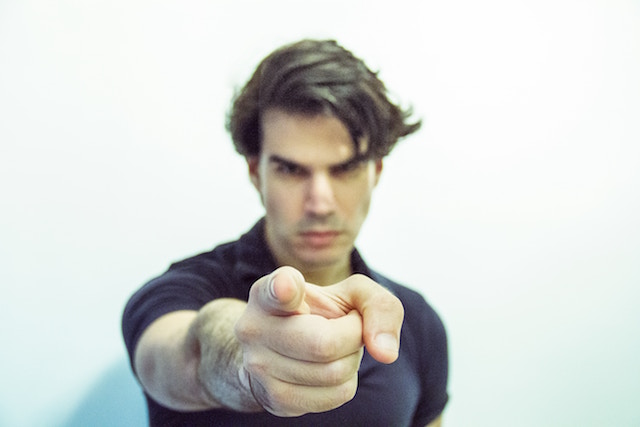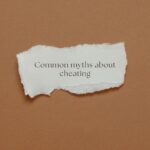Let the journey of self-discovery enrich your life...
The “blame-game.” We’ve all played it, sometimes without even realizing that we have a choice to stop. On one hand, it’s aptly named: it’s a “game” in the sense that we can get so caught up in blaming others for something that has happened or what we don’t like in our lives that we distract ourselves from where our own responsibility lies.
Like a complex, convoluted, self-perpetuating game with many levels, we can even lose the thread of where it all began. Once we pass “go,” there’s no stopping us! The blame gets projected outward (on him, her, them), and we’re ever on the lookout for new blame-targets for the game.
On the other hand, however, it’s not like a game at all in that it’s not good for us. Quite the contrary, it can hurt us: hurt how we feel about ourselves, hurt our relationships. Blaming others for what has made us unhappy is a game that leads nowhere…except to more unhappiness.
You may think that blaming someone hurts them. “Hey, no fair, don’t blame me!” you may have heard. Ultimately, though it hurts you. It’s like that old adage about bitterness and resentment (colors on the blame palette) … when you nurture resentment against another, it’s as if you’re swallowing poison, expecting the other person to get sick.
(This of course doesn’t mean you don’t protect yourself from other people’s toxic or destructive behavior…it just means that feeding long-term bitterness and blame will hurt you, not them.)
Acknowledging where responsibility lies, yes; remaining mired in blaming others, no
Before we go any further into discussing the incredibly common human tendency to blame others on a regular basis, I want to make an important distinction between the self-defeating “blame-game” and appropriately holding people (others and yourself) accountable and responsible.
There are times when we are wronged, or when we wrong others. And one measure of emotional maturity is being able to take responsibility for mistakes, as well as being clear about the cause of something if we are the victim of someone else’s error or malice.
However, there is a big difference between accurately identifying someone as wrongdoer (and taking appropriate corollary steps, like pressing charges if a crime has been committed), and lashing out in blame long past the event, or when the blame serves no purpose other than keeping you stuck in the past.
We all know the difference between affixing responsibility and playing the blame-game, even though in painful moments we may revert to blind blaming without realizing it. After all, isn’t it less painful to blame someone than it is to be alone with our deep sorrow? Don’t we feel more in control when we can point the finger at someone else, and, even better, convince others about how right we are in pointing the finger?
The reason for the blame game? Blame absorbs and disguises more painful emotions
In his book The Forgiving Self, psychoanalyst Robert Karen describes blame as “absorbent.” “It soaks up sadness,” he writes. “It dries the tears. It provides an opportunity and a target for fury which is felt as preferable to experiencing pain or loss.”
If we stop there, it might sound like letting oneself slip into the labyrinthine system of blame—and developing blame-amnesia, forgetting the truth that we are ultimately responsible for our own moods—is a good thing. But Karen makes a case for the opposite:
“Blaming and vindictiveness are ways of not feeling one’s sorrow or shame, and, by corollary, of not caring for oneself. Blame is the anti-mourn, and hence, the anti-self.”
At best blame can postpone you feeling the sorrow or shame. It can’t altogether prevent it. We know that whatever is repressed will eventually (re)emerge, sometimes wreaking more havoc down the road than if it had been experienced at the time of the event.
Is blame negatively impacting your emotional wellbeing?
When you reflect on how satisfied you are with your life, if you find yourself focused outward more than inward, and if you find yourself thinking in terms of “because he did that” or “because she didn’t do that,” you may be blaming more than experiencing. This is nothing to feel bad about (chronic self-blame can be as destructive as other-blame, after all, so don’t feel the need to turn the blame inward!). We are human and therefore we share knee-jerk emotional tendencies.
This doesn’t mean we can’t resolve to do better, of course. Understanding why blame is preferable to sorrow can do you a world of good.
Next, try to develop the habit of just noticing, without self-judgment or self-chastisement, when you slide into blaming others for how you feel in the moment. Start to notice this on a regular basis, and I think you’ll be surprised. It can feel uncomfortable or awkward to consciously opt to experience underlying sadness instead of looking around for the person to blame for your unpleasant emotions, but, like any habit, it will grow more natural over time.
Not only can reassessing your commitment to blame—and deciding to rely on it less—improve your own emotional outlook, but it can improve your relationships, too. When you stop playing the blame-game (a “game” that has no winners), you open up space for authentic relating between you and others.
Wishing you the best,
Dr. Rich Nicastro
(Photo by Adi Goldstein on Unsplash)









